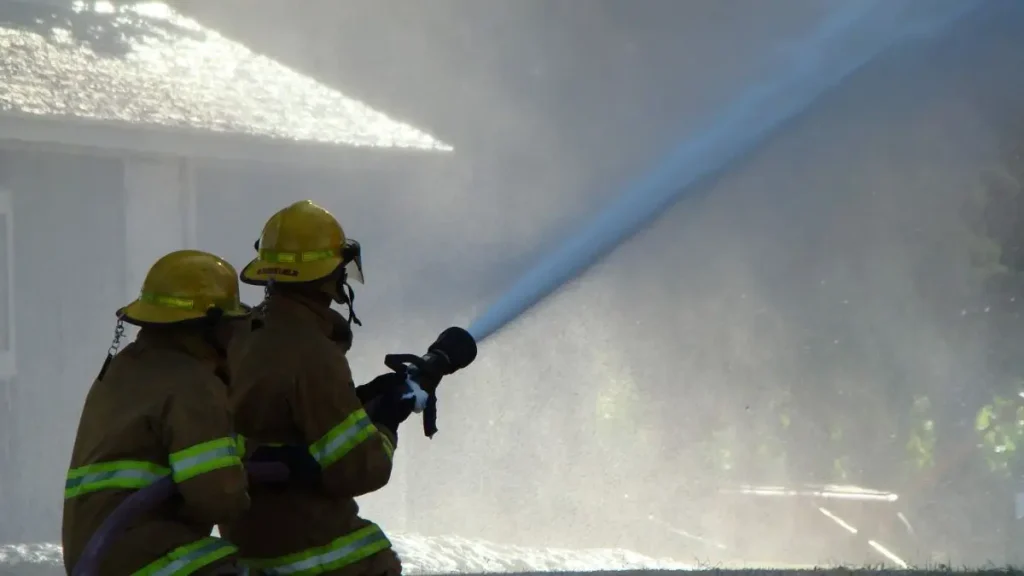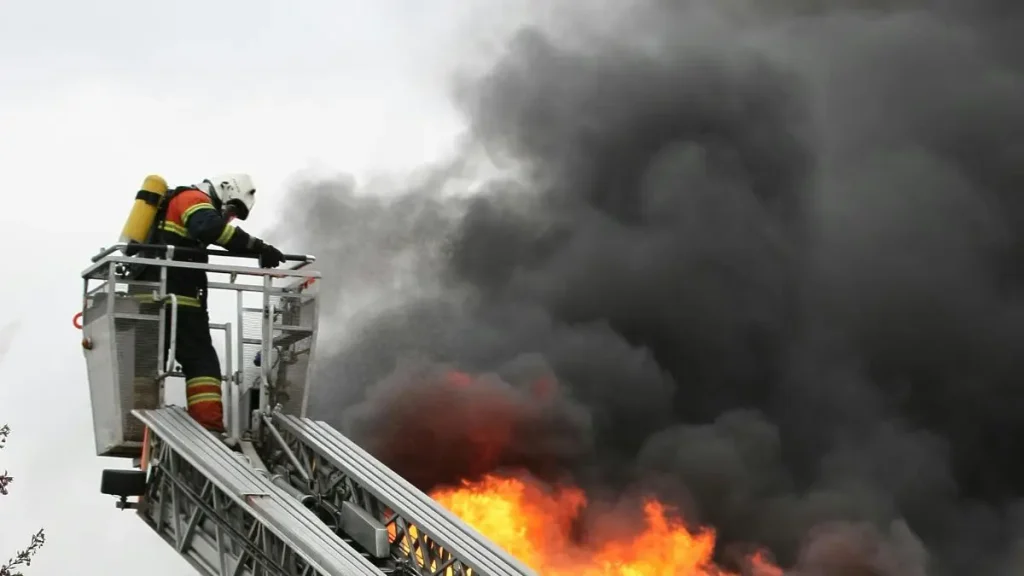Electric Scooter Sparks Blaze, Explosion in Massachusetts Home
I still remember reading about the Ludlow fire, and honestly, it shook me. Imagine sitting at home on a regular Tuesday afternoon, and suddenly, flames are shooting out of your kitchen windows. That’s exactly what happened around 3:53 p.m. at 56 Haviland Street. The residents called 911, and by the time the Ludlow Fire Department arrived, the fire was already intense—flames bursting from multiple windows.
Firefighters didn’t waste a second. They called in extra units, and within just 15 minutes, they had the blaze under control. The home, however, wasn’t so lucky. Smoke and fire damage left it uninhabitable, and the family had to leave everything behind.
Thankfully, no one was hurt, but I can’t help thinking about what it would feel like to watch your home go up in flames while knowing there’s nothing you can do to stop it.
This part of the story is more than just a timeline of events—it’s a reminder of how quickly ordinary life can turn dangerous, and why knowing the risks in our homes isn’t something we can afford to ignore.
Cause of the Fire – Lithium-Ion Battery Explosion

I want to be honest with you—this part of the story is what really makes you pause. The fire didn’t start because of faulty wiring or a careless candle; it started with something most of us have at home every day: a lithium-ion battery. According to the Ludlow Fire Department, the battery from an electric scooter exploded right in the kitchen.
Here’s what happened: the battery had been failing to charge, and the homeowner was using an aftermarket charger bought online. Unfortunately, those chargers aren’t always compatible. When the battery overheated, it exploded, and in seconds, the kitchen was on fire.
Hearing about it, I realized how easy it is to overlook these small risks. You might think, “It’s just a charger,” but when things go wrong, the consequences can be massive. And the scary part? The fire could have easily injured someone if the family hadn’t gotten out quickly.
Understanding Lithium-Ion Battery Risks
Lithium-ion batteries power so many devices around us—your phone, laptop, or even that electric scooter you might be using every day. But here’s the reality: they can be unpredictable. According to NBC Boston, these batteries can overheat, short-circuit, or even explode if they’re damaged, overcharged, or used with the wrong accessories.
What I take from this—and what I want you to know—is that the danger isn’t about fear-mongering. It’s about understanding simple rules: use certified chargers, avoid aftermarket gadgets that aren’t tested, and never leave a battery charging unattended.
The moment you start seeing your device acting weird while charging, treat it as a warning sign rather than an annoyance.
Similar risks have been reported in other home fire incidents, like the tragic explosion in Wisconsin that injured a resident.
Community and Fire Department Response
Watching the firefighters work that day really put things into perspective. The Ludlow Fire Department jumped into action immediately, calling in extra units and getting the blaze under control in just 15 minutes.
It’s reassuring to know that your local responders are trained for these emergencies—but it also reminds us that sometimes, minutes can make a huge difference.
The community rallied too. Neighbors checked on each other, and local organizations stepped in to help the displaced family. Even though no one was injured, the fire left the residents without a home temporarily—a stark reminder that fire safety isn’t just about avoiding injury; it’s about protecting your life, your home, and everything you’ve built.
Many homeowners stay updated with real-time safety alerts and fire news through dedicated channels—some even share live updates and safety tips via WhatsApp groups.
Similar Incidents and Broader Implications

If you think this was an isolated incident, it’s not. Across the country, lithium-ion batteries are increasingly linked to home fires. Cases involving e-scooters, laptops, and even hoverboards have made headlines.
What I find alarming is that most people still underestimate these risks until something happens to them or someone they know.
Experts are raising awareness, and some products have even been recalled after fires. The takeaway for you—and for anyone reading this—is simple: small precautions now can prevent a catastrophe later. Understand the devices you bring into your home and how they’re powered.
Unfortunately, fires in residential homes aren’t rare—cases like the West Side San Antonio fire, ruled accidental, remind us that small oversights can have devastating consequences.
Preventive Measures You Can Take Today
Here’s where it gets practical. You don’t have to be a fire expert to take simple, life-saving steps:
- Use certified chargers only: It might be tempting to grab a cheaper online alternative, but it’s not worth the risk.
- Charge on safe surfaces: Keep batteries on hard, non-flammable surfaces, not on beds or couches.
- Don’t leave batteries unattended: Charging overnight or while you’re away can turn a small problem into a big one.
- Recycle safely: If a battery isn’t holding a charge, take it to a household hazardous waste drop-off or battery recycling location.
I like to think of these steps as insurance—you hope you’ll never need it, but when you do, it can save lives and property. Ask yourself: when was the last time you checked your devices or chargers for potential hazards?
In some heartbreaking cases, like the death of a 12-year-old girl after a North Mankato house fire, preparation and awareness could make a life-saving difference.
Key Takeaways and What You Can Do Next
Thinking about the Ludlow fire, one thing hits me hard: it only takes a few minutes for a small battery problem to become a life-altering disaster. But here’s the silver lining—you can take steps today to prevent it from happening to you.
- Fires can happen with everyday devices. Don’t assume it “won’t happen to me.”
- Always use certified chargers and avoid aftermarket accessories that aren’t tested.
- Charge batteries on safe surfaces, never leave them unattended, and dispose of old batteries responsibly.
- Awareness and preparation are just as important as the fire department’s response.
I want to leave you with this: check your devices today. Look at your chargers, your e-scooter batteries, your laptops. Ask yourself—am I being careful enough? Taking a few simple precautions could save your home, your belongings, or even your life.
Have you ever noticed your battery or charger acting strangely? Share your experiences—I’d love to hear how you keep your home safe.
For more real-life home safety stories and expert tips, check out our Home Incidents Category for detailed guides and case studies.
Disclaimer: The information in this article is for educational and safety purposes only. It is based on verified news sources and expert statements but does not replace professional advice. Always consult local authorities or fire safety experts for specific guidance.


